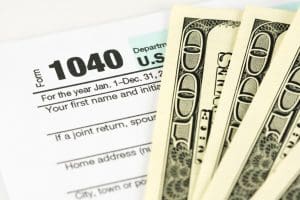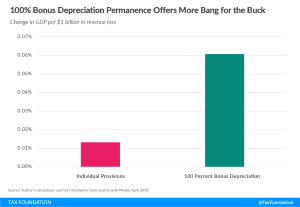The economic crisis caused by the coronavirus pandemic poses a triple challenge for tax policy in the United States. Lawmakers are tasked with crafting a policy response that will accelerate the economic recovery, reduce the mounting deficit, and protect the most vulnerable.
To assist lawmakers in navigating the challenge, and to help the American public understand the tax changes being proposed, the Tax Foundation’s Center for Federal Tax Policy modeled how 70 potential changes to the tax code would affect the U.S. economy, distribution of the tax burden, and federal revenue.
In tax policy there is an ever-present trade-off among how much revenue a tax will raise, who bears the burden of a tax, and what impact a tax will have on economic growth. Armed with the information in our new book, Options for Reforming America’s Tax Code 2.0, policymakers can debate the relative merits and trade-offs of each option to improve the tax code in a post-pandemic world.




Tax Reform 2.0 Takes Shape
Recently, Congress released a series of bills which have been dubbed “Tax Reform 2.0.” These bills modify and build upon the Tax Cuts and Jobs Act, whose individual provisions are currently set to expire at the end of 2025. We outline the details of each bill, including changes to tax rates, the standard deduction, and the child tax credit.
3 min read



Permanence for 100 Percent Bonus Depreciation Provides More Cost-Effective Growth than Permanence for Individual Provisions
In the long run, permanent full expensing produces about 4.5 times more GDP growth per dollar of revenue than making individual TCJA provisions permanent.
2 min read
